Sudden changes in temperature – from warm to cold environments – cause the body to react immediately: blood vessels constrict, blood pressure increases, and the heart beats faster to maintain circulation. Many people only feel numbness in their limbs or shivers, but for people with underlying cardiovascular disease, high blood pressure, or diabetes, the first few minutes of being outside in the cold can be a "red alert" moment for their health. Understanding and proactively adapting to this "heat shock" is an important way to prevent dangerous complications during the cold season.
Heat shock: the body's immediate response
The human body is designed to maintain a stable body temperature of around 37°C. When stepping from a warm environment into cold air, the sympathetic nervous system immediately activates a "protective" mechanism - peripheral blood vessels constrict to reduce heat loss, concentrating blood flow to important organs such as the heart, lungs and brain. But this vasoconstriction causes blood pressure to rise rapidly, the heart has to work harder to pump blood through the "tightened" vessels.
In just a few minutes of sudden cold, the body must expend extra energy to "warm" the air when breathing, while also regulating heart rate, blood pressure and body temperature. For healthy people, this reaction may only cause a feeling of temporary discomfort. But for the elderly, people with cardiovascular disease, high blood pressure or circulatory disorders, this change can be the "last straw", triggering a heart attack, stroke or fainting.

Office workers should put on coats and scarves before leaving the building on cold days.
When a few minutes of cold can turn into a big risk
Cardiologists warn that sudden cold weather increases blood viscosity – or in other words, makes the blood “thicker”. This slows down blood flow in the blood vessels, making it more likely to form clots. Combined with increased blood pressure and a stronger heart rate, the risk of a heart attack or stroke can increase within just a few minutes of cold exposure.
Not only that, when inhaling cold air, the nasal mucosa and trachea contract, causing people with chronic respiratory diseases such as asthma, bronchitis or COPD to easily experience coughing, difficulty breathing or bronchospasm. On windy days with low temperatures, this risk is many times higher.
A recent study found that for every 1°C drop in temperature, hospitalizations for heart attacks increased significantly over the next 2–3 days. This suggests that the body has trouble adapting to temperature changes, especially when the change occurs too quickly – typically when office workers go out into the cold after work or elderly people step out in the early morning.
The body is "disturbed" in the first few minutes
During the first few minutes of exposure to cold weather, the body typically goes through a series of reactions:
- Peripheral blood vessels constrict, reducing blood flow to the hands, feet, and face – causing pale, numb, and cold skin.
- Blood pressure increases rapidly, sometimes up to 10–20 mmHg, especially in people with underlying diseases.
- Increased heart rate, rapid heartbeat to maintain blood flow, creating a feeling of palpitations or chest tightness.
- Breathing becomes shallow and rapid, as the cold air irritates the respiratory tract lining.
- Shivering is a natural thermogenic response that helps the body stay warm but also uses energy.
Just a few minutes of “heat stress” requires the nervous, circulatory, and respiratory systems to work together to adapt. If the body is not strong enough or has underlying damage, the risk of complications increases significantly.
Who is most affected?
Heat stroke can happen to anyone, but the following groups are particularly vulnerable:
Elderly: Poor ability to regulate body temperature, less elastic blood vessels, weak heart.
People with cardiovascular disease, high blood pressure, high blood fat: Veins easily constrict, blood circulation is slow, high risk of blockage.
People working in air-conditioned environments all day: The body is used to stable temperatures and has difficulty adapting to sudden changes outside.
Smokers and regular drinkers: Blood vessel walls are damaged, vasoconstriction is stronger than normal.
Outdoor workers or those who exercise vigorously immediately after being out in the cold: The cardiovascular system must bear double pressure – exerting effort and coping with low temperatures.

Drinking warm water, walking slowly and breathing evenly helps the body adapt when going out in cold weather.
How to protect your body from heat shock
- Dress warmly before going out, especially the head, neck and hands – where heat is lost the fastest.
- Reduce temperature differences by turning off or reducing the air conditioning a few minutes before leaving the office.
- Go slowly, breathe deeply to give your body time to adjust.
- Avoid strenuous exercise immediately after being outside in the cold, such as running or climbing stairs.
- Drink warm water to aid blood circulation and keep the respiratory tract moist.
- Monitor blood pressure regularly, especially for people with underlying diseases.
- Avoid smoking, drinking alcohol or strong coffee before going out – these substances cause blood vessels to dilate abnormally.
Don't underestimate a few minutes "out in the cold"
For many people, the seemingly harmless moment of leaving the office or stepping out the door in the morning is the time when the cardiovascular system is under the greatest pressure of the day. Even a small change in temperature can cause the body to fall into a state of temporary disorder, creating conditions for serious events to occur.
Understanding the mechanism of "heat stroke" helps us be more proactive in prevention: wear enough warm clothes, go out in a controlled manner, do not exert yourself immediately when exposed to cold. A few minutes of small preparation can help the body get through the cold season safely - avoiding unnecessary health risks, especially for the elderly and people with cardiovascular disease.
Source: https://suckhoedoisong.vn/canh-bao-soc-nhiet-khi-thoi-tiet-lanh-khien-tim-mach-khong-kip-thich-nghi-169251103114904171.htm






![[Photo] Opening of the 14th Conference of the 13th Party Central Committee](https://vphoto.vietnam.vn/thumb/1200x675/vietnam/resource/IMAGE/2025/11/05/1762310995216_a5-bnd-5742-5255-jpg.webp)


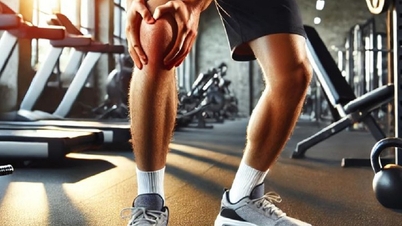



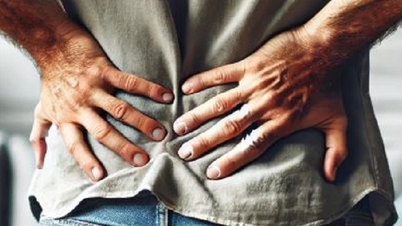














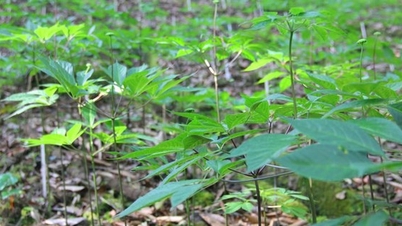





![[Photo] Panorama of the Patriotic Emulation Congress of Nhan Dan Newspaper for the period 2025-2030](https://vphoto.vietnam.vn/thumb/1200x675/vietnam/resource/IMAGE/2025/11/04/1762252775462_ndo_br_dhthiduayeuncbaond-6125-jpg.webp)











































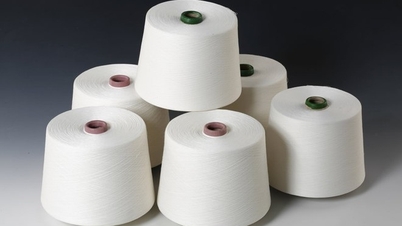


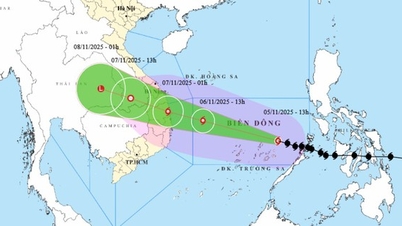





























Comment (0)